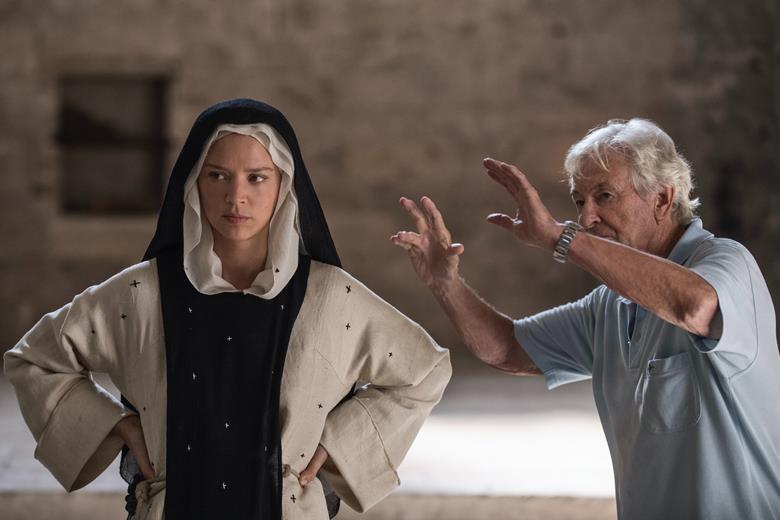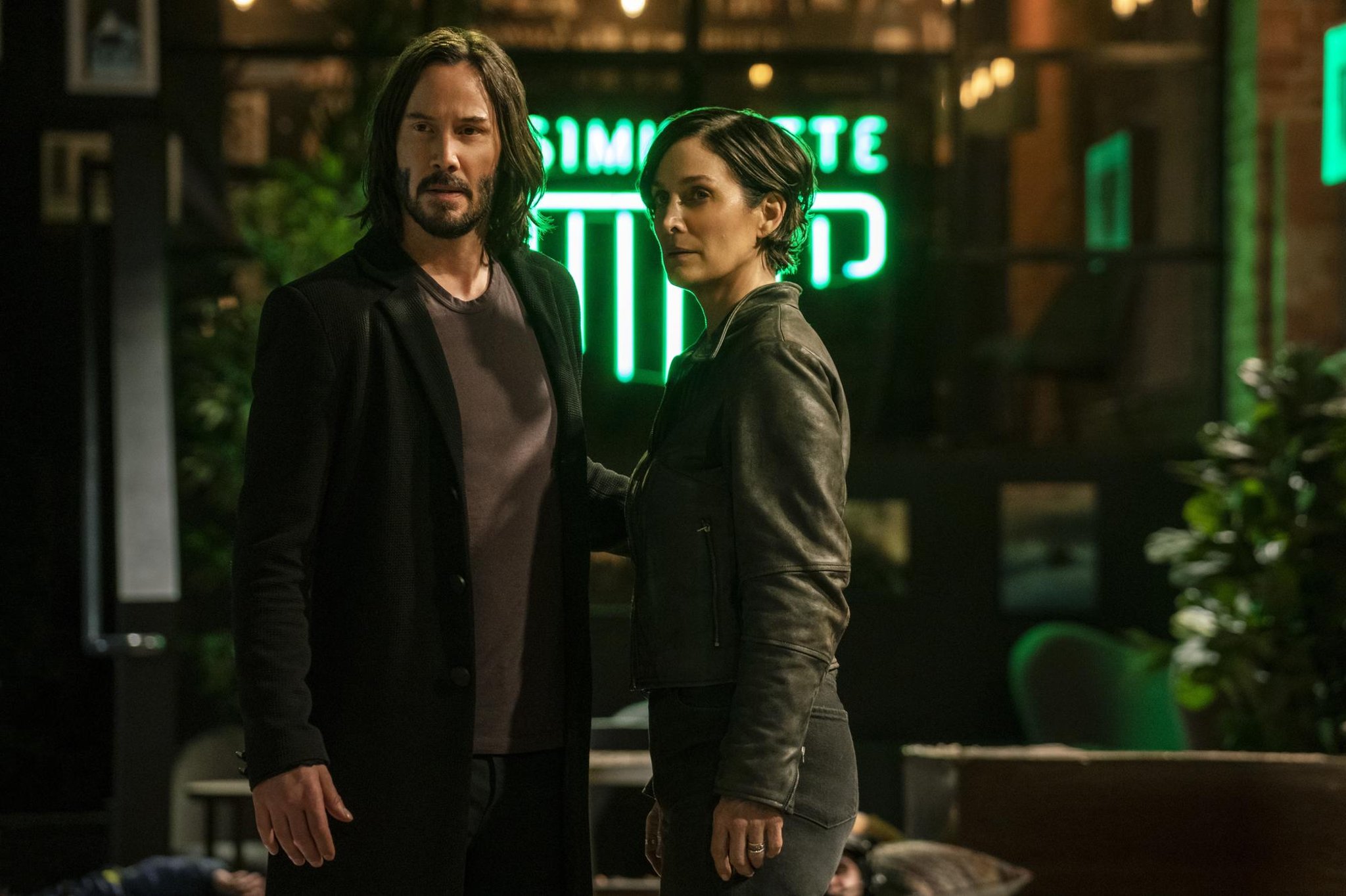Get in touch to send in cinephile news and discoveries. For daily updates follow us @NotebookMUBI.
NEWS

Above: Sidney Poitier holding his best actor Oscar, won for his role in Lilies of the Field (1963).
- The singular actor, director, and civil rights activist Sidney Poitier died last Thursday. An immigrant from the Bahamas who rose to prominence through the American Negro Theatre, then Broadway, Poitier entered Hollywood when few complex roles for Black actors were available. He became the first Black man to win the best actor Oscar in 1963 for Lillies of the Field, but also frequently received criticism for playing roles perceived as overly chaste and stately. Poitier persisted nonetheless, and later directed his own films, such as Buck and the Preacher (1972), starring his friend Harry Belafonte and Ruby Dee, and the Gene Wilder-Richard Pryor prison break comedy Stir Crazy (1980).
- The prolific critic, programmer, and filmmaker Peter Bogdanovich also died on Thursday. After writing about film and programming key retrospectives dedicated to auteurs like Orson Welles and Howard Hawks throughout the 1960s, Bogdanovich went on to direct films like The Last Picture Show (1971) and They All Laughed (1981), which were released to varying degrees of critical and commercial success. His contributions to American cinema history continued until very recently, with his tireless efforts to bring Orson Welles' The Other Side of the Wind to completion in 2019.
- Cate Blanchett has signed on to star in Pedro Almodóvar's first English-language film, A Manual for Cleaning Women. The film is an adaptation of Lucia Berlin's collection of short stories about 43 different women in demanding jobs.
- Having previously announced that he'd be developing a series and a film for Netflix, Hirokazu Kore-eda's Netflix series will be The Makanai: Cooking for the Maiko House. Based on Koyama Aiko's manga series Maiko in Kyoto: From the Maiko House, the series will follow a teenager who finds a job cooking meals for a house of apprentice geisha.
- Josephine Decker's adaptation of the bestselling YA novel The Sky is Everywhere is set to arrive on Apple TV+ February 11. The film follows a teenaged music prodigy who finds herself torn between her late sister's boyfriend and the new guy at school. To EW, Decker describes The Sky is Everywhere as "a film where you experience every emotion — where you laugh and cry, find tension and release, feel sexy, feel scared."
- Check here for new additions to the lineup for the International Film Festival Rotterdam, which will take place online between January 26 and February 6.
RECOMMENDED VIEWING
- The official trailer for Jane Schoenbrun's We're All Going to the World's Fair, an atmospheric horror film about a teenager who becomes involved in a series of creepy role-playing meme challenges online.
- Kino Lorber has announced a touring retrospective of six films by Hungarian filmmaker Miklós Jancsó, restored by the Hungarian National Film Archives from the original 35mm negatives. Watch the trailer for the series, which starts this Friday at New York's Metrograph theater.
- Another retrospective dedicated to a Hungarian master—socialist and feminist filmmaker Márta Mészáros, who coincidentally was once married to Jancsó—will be starting later this month at the Film Society for Lincoln Center. Mészáros is also the subject of an online MUBI retrospective, Independent Women: The Pioneering Cinema of Márta Mészáros, available in many countries. Read our Notebook Primer on Mészáros by Kat Sachs here.
- Critic David Ehrlich has released his annual video tribute to the 25 best films of the year, from The Many Saints of Newark to Undine.
- The trailer for Playground by Laura Wandel, Belgium's submission for the 2022 Oscars. Through a child's perspective the film captures the harrowing reality of bullying at an elementary school.
RECOMMENDED READING

Above: Paul Verhoeven on the set of Benedetta (2021). (Courtesy of IFC Films)
- For The Baffler, Kit Duckworth writes on the films of Paul Verhoeven and the theological lineage of his latest, Benedetta.
- Samantha N. Sheppard of the Atlantic considers the complicated career and paradoxical celebrity of the great Sidney Poitier, who paved the way for Black actors in Hollywood. In his tribute to Poitier, Wesley Morris of the New York Times declares him to be the greatest American movie star: "Who did more with less? Of whom was less expected as much as more?"
- In a new interview with critic Bilge Ebiri, Ryusuke Hamaguchi discusses the difference between film and literature, the overlapping productions of Wheel of Fortune and Fantasy and Drive My Car, and the appeal of driving at night.
- For the next few months, Sabzian will be publishing a series of translations of the work of the late German film critic Frieda Grafe, also known as the “queen of German film criticism." The first is a text on Jean Vigo's L’atalante.

Above: The Matrix Resurrections (2021)
- Sam Bodrojan's review of Lana Wachowski's The Matrix Resurrections is a probing investigation of everything the film does and does not offer, and the questions it raises about explicit trans representation in the media.
- Una tumba para el ojo has published an insightful interview with Alan Rudolph, who shares his experiences working with Robert Altman and his wife Joyce Rudolph, making "absurdist fables," and filming in digital.
- Richard Brody remembers Peter Bogdanovich as "one of the history-making heroes of the world of movies" for his monumental critical output and directorial artistry.
- The New York Times critics A.O. Scott and Manohla Dargis have a conversation on Poitier and Bogdanovich and their respective acts of defiance in overlapping eras of Hollywood.
- From Deadline, a deeper look at TikTok's growing influence on Hollywood marketing campaigns, specifically in the recent case of Sony's Spiderman: No Way Home.
RECENTLY ON THE NOTEBOOK
- Alexandre Koberidze introduces his film What Do We See When We Look at the Sky?. The film is showing exclusively on MUBI in many countries in the series The New Auteurs.
- Olympia Kiriakou's Notebook Primer is dedicated to the fast-paced battle of the sexes explored in the screwball comedy, which exemplified the socio-economic politics of the 1930s and 1940s.
- Kelley Dong reviews Lana Wachowski's The Matrix Resurrections, which wrestles with its own meaning as a blockbuster.
- Natasha Ceci reappraises the films of Nico D'Alessandria, one of Italian filmmaking's least known, but most important directors.
- Joshua Bogatin identifies One Shot from the 1941 Gary Cooper drama Meet John Doe that encapsulates the quintessentially American director Frank Capra.